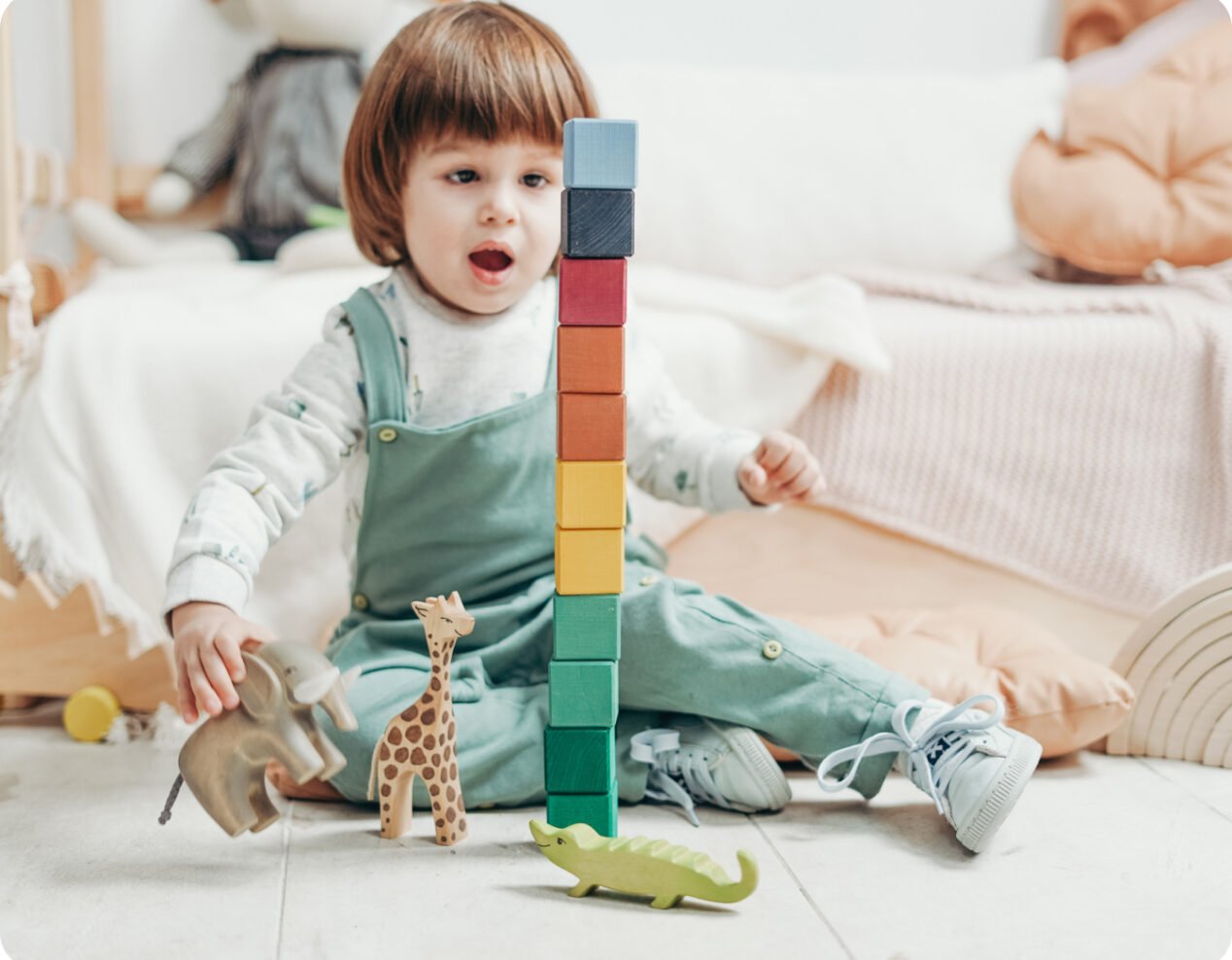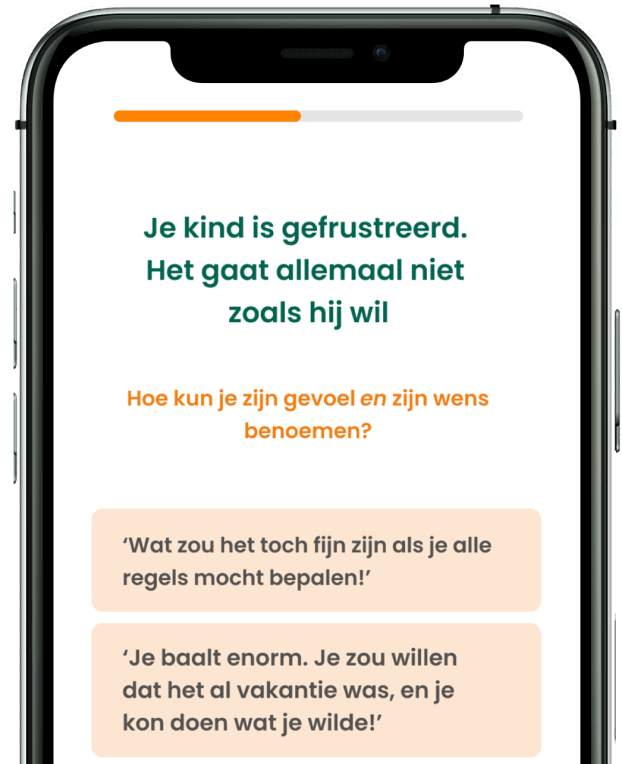About the method
We get it. We’ve been there ourselves. It’s difficult not to explode with rage when you trip over that backpack yet again, have to retrieve the dirty laundry from under the bed yourself or when your toddler gets into a screaming match with the baby. But there is another way…
Communicate differently
We know you have so much love for your child. By communicating with them in a different way, you get to show that love more easily. Howtotalk helps you create and maintain a harmonious atmosphere at home – where there’s mutual respect and everyone is free to be themselves. A home where there’s room to explore and flourish, but within healthy boundaries. A home where your child can be happy, fulfilled and confident – and grow up ready to take on the world.
Something for everyone
Positive parenting, gentle parenting, mindful parenting: whatever you call it, Howtotalk helps you strengthen the connection with your child, while setting healthy boundaries. It’s about forging a positive, loving approach, learning to communicate with respect, and building independence.
You can use the Howtotalk method with children of all ages. Once the penny drops, it’s just a matter of practice. And that’s where we can help. As soon as the method becomes habit, you’ll continue to reap the benefits. Both you and your child will experience more peace, respect, space and confidence.
A strong foundation
The Howtotalk method is based on the work of child psychologist and therapist Dr Haim Gillet, and is inspired by the international bestseller How to Talk so Kids Will Listen And Listen so Kids Will Talk by Adele Faber and Elaine Mazlish. Backed by scientific research and with more than 50,000 training courses delivered to parents and educators, our version of the method is about love, respect and building trust.
Our six building blocks
We’ve split our content into six themed, easy-to-use sections
- Block 1
Emotions
Many parents are tempted to punish – or simply ignore – tears and tantrums. But a child who feels seen and heard is more likely to calm down of their own accord, and be more open to suggestions and new ideas. They feel respected and comforted because they know their feelings matter. In this building block, we explain how to understand and respond to your child’s emotions – without losing sight of your own boundaries.
- Block 2
Cooperation
We’re all on a short fuse from time to time. All those little irritations can pile up and tip you over the edge – when you find yourself asking your child to hang their coat up for the umpteenth time, for example! But by encouraging children to cooperate in a positive way, the atmosphere at home will be much cosier and calmer – and their self-confidence and independence will soar. In this building block, you will learn different ways to get your child to cooperate in a happy, respectful way.
- Block 3
Boundaries
Punishing your child when their behaviour crosses the line doesn’t make sense. Calmly and respectfully explaining the consequences of their behaviour does. This building block is about setting and protecting boundaries while ensuring your child accepts responsibility for their own behaviour. That way, children learn the value of their own boundaries and learn to respect other people’s.
- Block 4
Independence
How can you help your child grow in confidence and self-knowledge? By allowing them to experience life’s ups and downs while resisting the urge to step in and solve every problem. By giving children the space to work things out for themselves, they’ll learn to investigate, analyse and draw their own conclusions – while becoming more capable and independent. That’s what this building block is all about.
- Block 5
Praise
Dishing out compliments isn’t always helpful. Of course, it’s only natural to shout, “That’s amazing!” every time your child does a new drawing. But if you insist everything they do is amazing, they may start to doubt your words. They may also feel under pressure to perform just as well next time. In this building block, we look at descriptive praise. This is a way of teaching your child to praise themselves – the greatest compliment of all.
- Block 6
Labels
From “slow-coach” to “my little klutz”, giving your child a label or nickname may seem harmless, but it can have long-lasting consequences. They may start to behave in a way that fits the label and find it hard to act differently or learn new behaviours. In this building block, we look at how to free children from unhelpful labels and limitations, and help them achieve their true potential.
Howtotalk: the ultimate positive parenting app
Done with counting to three, losing your temper and dishing out punishments? Howtotalk offers a different approach. Learn how to build a strong bond with your child while dealing with tantrums, fussy eating, screen time issues and all those other daily challenges – gently and respectfully




